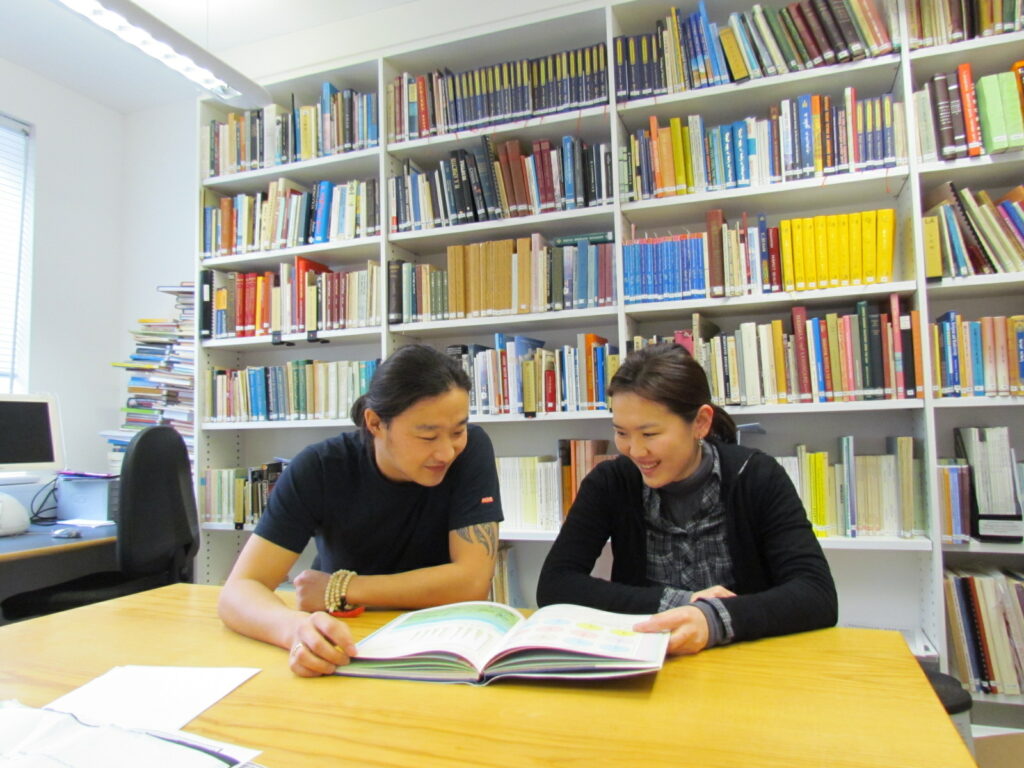IDG Interview: National University of Mongolia

The following is a short interview highlighting just some of the developments that have taken place at the Department of Anthropology, the National University of Mongolia, since it received the Institutional Development Grant in 2009. Professor Bumochir Dulam, one at the professors provided this inspiring information about work taking place in Mongolia, and how the IDG grant allowed them to partner up with the Mongolia and Inner Asia Studies Unit (MIASU) to support further training and curriculum and program development in the Department.
How has this grant helped your department since you began receiving it?
Improvements we made by receiving Wenner Gren Institutional Development Grant lie in several areas of our department in Mongolia. The areas are in enhancing professional training of staff members, improving the PhD curriculum and course syllabi, enriching the anthropology book collection within the department and improving the work condition and environment for PhD candidates. We are sending four PhD candidates, who also teach in the department, to complete their PhDs under joint supervision at Cambridge University, (UK). Each of them have now accomplished a one term long stay at the Mongolia and Inner Asia Studies Unit (MIASU), Cambridge University. There they worked on their PhD research under the supervision of their academic mentors and attained lectures and seminars. In addition to the four PhD candidates, another four staff members visited Cambridge to conduct library research, design our PhD curriculum and produce course syllabi again with the mentorship of MIASU anthropologists. As a result now we have a new PhD curriculum with all elaborated syllabi and staff members who are trained in teaching those courses. Since 2008, after we began receiving the IDG grant we have had an on going collaboration with MIASU and the Social Anthropology Department in Cambridge which helped us to establish and solidify our collaboration. In the recent future we are hoping to have several co-authored articles and papers, with the important support from our Cambridge colleagues to promote our junior anthropologists. For instance, Prof C. Humphrey and our PhD candidate P. Chuluunbat are conducting research on the ethical issues of contemporary Mongolian shamanism and planning to produce co-authored article. All of those developments, the curriculum development and academic publications, were achieved with the help of the Wenner Gren Foundation and are a new start for the department to shift its approach and academic trend towards western anthropology.
Could you describe some of the research taking place in your institution and how it is developing?
Our four PhD candidates are strategically being trained in four different areas of anthropology, namely development, environment, religion and art. For instance, industrialization and development of mining is becoming a big thing in Mongolia and due to this reason one of the PhD candidates is focusing on the comparative studies on the mining issues in communist and post communist era. Another research concentrates on the national policy on culture again during and after communism, and how it is being endorsed in nation state building.
What do you hope to see happen in your department over the next ten years?
The department is preparing itself to be one of the new centers of anthropology in order to promote the trend of decentralization. In order to make it happen there are more work needs to be done such as strengthening our research, publication and collaboration with international anthropological institutions both in the level of individual staff members and the institution itself.
The Institutional Development Grant (IDG) supports the growth and development of anthropological doctoral programs in countries where the discipline is underrepresented and where there are limited resources for academic development. for more information on this grant program please visit our Programs page.